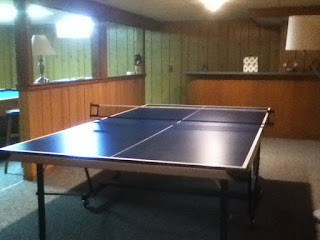DISCLAIMER: I wrote this after getting only 7 hours of sleep this since Friday (basically 7 hours of sleep during the past 65 hours). I hope this makes sense...
Anyways, literally and truly, one cannot get on well in the world without perfect grades. This is what I have been constantly told while growing up. However, after reading "On the Want of Money" by William Hazlitt, I realized a life set on an unhealthy goal is not a life worth living. Now I understand that even if I get good grades and become president of the world, I still might not get into the college of my choice. I can't be scared of failing as high school will become a place of "little credit or pleasure" (Hazlitt).
Anyways, literally and truly, one cannot get on well in the world without perfect grades. This is what I have been constantly told while growing up. However, after reading "On the Want of Money" by William Hazlitt, I realized a life set on an unhealthy goal is not a life worth living. Now I understand that even if I get good grades and become president of the world, I still might not get into the college of my choice. I can't be scared of failing as high school will become a place of "little credit or pleasure" (Hazlitt).
 By junior year, everyone has the formula of good grades=good college=set future drilled into their minds. Grades are like bullies, they make you feel depressed and you end up beating yourself up for getting knocked down by them. Hazlitt's piece about how life becomes a blur is very relatable to high school. During the first week of first semester, I get extremely motivated to study and not procrastinate at all. I think I can "change" from my past habits so it's a very clear period of time. However, as the weeks progress, the year becomes muddy. This middle section goes by without much thought. To put it bluntly, I wake up, go to school, and go to sleep. This mundane schedule shows that "one cannot get much more mechanistic than that" (Didion). By accepting the need of a 4.0 is to "accept, consciously or unconsciously, a deeply mechanistic view of human behavior" (Didion). My actions become reciprocated so many times that I don't feel anything while doing them anymore. I don't get to experience high school to its fullest extent or even hang out with friends. The time between the first and last week of school can be seen as the worst, because I can rarely enjoy pure fun. Finally, at the end of second semester, my memories become clear again due to finals. I gain newfound ambition to give myself the decisive push to an A.
By junior year, everyone has the formula of good grades=good college=set future drilled into their minds. Grades are like bullies, they make you feel depressed and you end up beating yourself up for getting knocked down by them. Hazlitt's piece about how life becomes a blur is very relatable to high school. During the first week of first semester, I get extremely motivated to study and not procrastinate at all. I think I can "change" from my past habits so it's a very clear period of time. However, as the weeks progress, the year becomes muddy. This middle section goes by without much thought. To put it bluntly, I wake up, go to school, and go to sleep. This mundane schedule shows that "one cannot get much more mechanistic than that" (Didion). By accepting the need of a 4.0 is to "accept, consciously or unconsciously, a deeply mechanistic view of human behavior" (Didion). My actions become reciprocated so many times that I don't feel anything while doing them anymore. I don't get to experience high school to its fullest extent or even hang out with friends. The time between the first and last week of school can be seen as the worst, because I can rarely enjoy pure fun. Finally, at the end of second semester, my memories become clear again due to finals. I gain newfound ambition to give myself the decisive push to an A.Just like how Horace Miner satirizes the ridiculousness of American culture, I feel as though I am following the "body ritual among the [stneduts]" (aka students). I may believe that this is the best way to succeed, but to other people, it seems like "an example of the extremes to which human behavior can go" (Miner).









